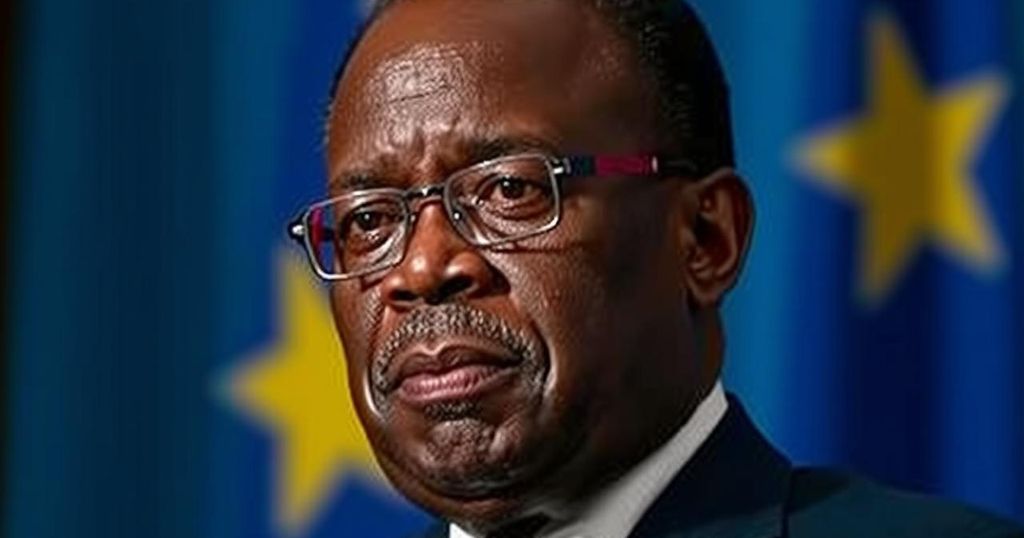President Felix Tshisekedi of the Democratic Republic of Congo has suggested changes to presidential term limits as part of a constitutional review, claiming the existing constitution is outdated. Critics, including civil society and political opposition, express concern that these changes could undermine democratic processes. The history of manipulation of term limits under former President Joseph Kabila adds context to current anxieties regarding potential constitutional amendments.
On October 23, President Felix Tshisekedi of the Democratic Republic of Congo proposed potential amendments to the nation’s constitution regarding presidential term limits during a speech delivered in Kisangani. This announcement comes despite Tshisekedi’s previous vows to adhere strictly to constitutional requirements. In his address, he characterized the current constitution as outdated and misaligned with the realities faced by the nation. He plans to establish a commission tasked with drafting a new constitution to be presented in 2025. Tshisekedi emphasized that any decisions regarding the alteration of presidential term limits should be determined by the populace. Support for a constitutional review has emerged from various government officials, including the minister of media and communication. Furthermore, on October 10, the ruling party’s secretary general urged party members to advocate for constitutional changes within their ranks. The subject of term limits holds significant historical weight in the Congo, given that the 2006 constitution, instituted by the late President Joseph Kabila, contains article 220, which prohibits modifications to presidential term durations. Kabila, however, managed to retain power beyond his constitutionally allowed term through oppressive measures, a situation strongly opposed by Tshisekedi at the time. Rights organizations and civil society groups have expressed concerns regarding Tshisekedi’s initiative, fearing it may facilitate a circumvention of the established two-term limit. Following his re-election to a second term in December 2023, an election noted for its violence, the government is accused of intensifying crackdowns on dissent and limiting fundamental liberties, including freedom of expression and the right to peaceful assembly. Currently, there are reports of multiple political figures and human rights advocates being detained without due process. While revisions to constitutions are commonplace, any amendments made to the Democratic Republic of Congo’s constitution must align with international human rights obligations, particularly ensuring citizens’ rights to participate in free and fair electoral processes.
The Democratic Republic of Congo is navigating a complex political landscape where constitutional matters significantly impact governance. President Felix Tshisekedi’s recent suggestions to modify presidential term limits prompt critical scrutiny due to a historical context involving former President Joseph Kabila’s controversial tenure. Under Kabila, the established constitution adopted in 2006 explicitly restricted presidential terms, yet Kabila extended his rule past constitutional limits, undermining democratic processes. Concerns arise that Tshisekedi may intend to replicate such maneuvers as he proposes changes. Observers note the importance of adhering to international human rights norms, emphasizing the need for citizens to engage in genuine elections.
In summary, President Felix Tshisekedi’s proposal to reassess constitutional provisions, particularly concerning presidential term limits, raises alarm among rights advocates and political opposition in the Democratic Republic of Congo. His assertion that the current constitution is outdated signals a potential shift in governance practices. While there is a push within government circles for constitutional reform, historical precedents and current societal conditions warrant cautious consideration of such changes to uphold democratic integrity and individual rights.
Original Source: www.hrw.org






